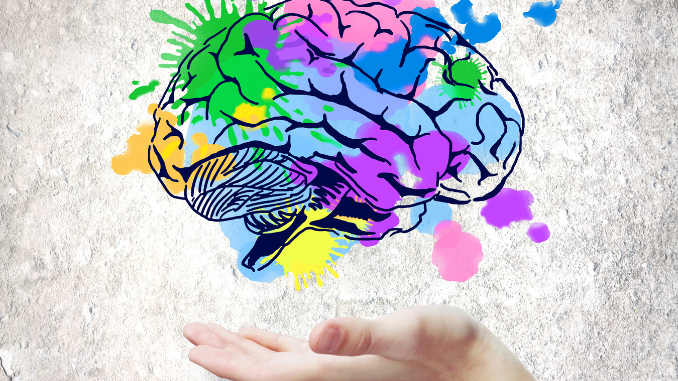In the contemporary era, navigating the stressors in daily life can exact a toll on our overall well-being. A thorough understanding of the all-encompassing repercussions of stress is imperative for cultivating a harmonious and healthful lifestyle, from professional responsibilities to personal challenges.
This piece delves into the 9 mind-body stressors and other essential things about stressors in daily life that wield substantial influence over overall wellness. By recognizing these pressures and comprehending their impacts, you can proactively embark on a journey toward tranquility and equilibrium, mitigating the negative consequences of stress on both the body and the mind.
The Connection Between Stress and Holistic Health
Chronic stress specifically the stressors in daily life has become a prevalent issue in today's fast-paced society, and its impact on holistic health cannot be underestimated. Stress is the body's reaction to any demand or threat, and when it becomes chronic, it can have extreme consequences on our physical, emotional, and mental well-being.
One of the most significant connections between stress and holistic health is its effect on high blood pressure. Stress can also deplete the immune system, making us more susceptible to infections and illnesses.
To achieve optimal holistic health, addressing and managing stress is essential. This can be done through various methods:
Exercise
Regular physical movement can help lower stress levels by releasing endorphins, natural mood boosters.
Meditation and deep breathing practices
Meditation and deep breathing can activate the body's relaxation response, promoting a sense of calm and reducing stress hormones.
Seeking support from friends, family, or professionals
Seeking help from loved ones or professionals can provide a safe space to convey emotions and receive guidance on stress management strategies.
9 Daily Stressors that Affect Your Life
1. Work-Life Imbalance
A formidable stressor in daily life ruins as career demands encroach on personal time, creating a perpetual sense of urgency.
A balance between professional commitments and personal life becomes crucial but often leads to strained relationships and reduced leisure. This delicate work life-balance, embedded in the modern tapestry of daily stressors, disrupts equilibrium, impacting mental and physical health.
Chronic stress, triggered by the constant stress response, contributes to high blood pressure and physical symptoms such as tense muscles and potential weight gain.
Recognizing the importance of balancing daily stressors is vital for holistic health, urging a conscious effort to relieve stress and prioritize both professional and personal well-being. It would help if you found ways to cope with the stress at your work. Check this to help you manage work stress effectively.
2. Poor Sleep Habits

Sleep deprivation causes the following:
- stressors in daily life, which leads to a vicious cycle of feeling inadequate.
- disrupts cognitive function
- drains energy
- tests emotional resilience
- affects daytime focus
- increases irritability
The bedroom, intended for relaxation, becomes a source of stress, amplifying the strain caused by chronic stress, significant life events, and daily pressures.
This struggle magnifies the impact on the body and stress response, leading to increased blood pressure, stress hormone release, tense muscles, and potential weight gain. Sleep problems can worsen other health problems and make it harder to deal with life's challenges.
Realizing that adequate, restful sleep is foundational for optimal mental, emotional, and physical functioning.
3. Health Issues
Health concerns can bring physical and emotional stress and difficulties, affecting daily life and relationships. Managing symptoms, medical appointments, and the overarching fear of the unknown heightens stress levels. It's a delicate balance where self-care transforms from a luxury to a crucial survival tool.
Chronic stress and major life events intersect with health psychology, manifesting in elevated blood pressure, the release of stress hormones, tense muscles, potential weight gain, and too many health problems. Relief from this complex interaction involves addressing daily stressors and implementing strategies for overall wellness.
4. Inactive Routine
Embracing a sedentary lifestyle may invite stress into our daily experience. Extended periods of inactivity create an environment conducive to stress, denying our bodies and minds the movement essential for their health.
Not doing what needs to be done gives stress an unfair advantage. Introducing intentional breaks, stretches, or brief exercises into our routine disrupts this cycle, signaling a shift toward a more balanced and healthier equilibrium.
This strategic approach isn't just a professional tactic; it's a potent stress-reduction strategy that enhances well-being and productivity. It acts as a countermeasure against the adverse effects of chronic stress, specifically those stressors in daily life in major life situations, and the physical toll of a sedentary lifestyle, promoting overall health and resilience.
5. Social Isolation
Everyday routines can lead to feeling alone, becoming a major source of stress that slowly affects mental health. Human connection, a fundamental need, takes center stage, and in its absence, stress becomes prominent.
The lack of meaningful interactions induces loneliness and disconnection, impacting emotional resilience and cognitive function. Prioritizing intentional social engagement, whether in person or virtually, becomes a strategic countermove. Recognizing the profound influence of social bonds is crucial for navigating the professional landscape with resilience and maintaining robust mental fortitude.
Addressing those stressors in daily life like chronic stress, relieving stress, and understanding the stress response is essential in behavioral medicine and health psychology, as it influences blood pressure, stress hormones, physical symptoms, and overall health problems.
6. Negative Thought Patterns
The daily stress landscape is significantly influenced by negative thought patterns. When our mental dialogue tilts towards self-doubt or pessimism, it becomes a subtle stressor, obscuring decision-making and impeding productivity.
Vital to this is recognizing and challenging these patterns, constituting a professional investment in cognitive resilience.
Nurturing a mindset inclined towards positivity and constructive self-talk emerges as a strategic asset for navigating stressful situations.
Through reshaping our mental narrative, we alleviate stress and strengthen the foundation for enduring professional well-being.
This proactive approach proves instrumental in managing stress levels, releasing hormones, and combating the effects of chronic stress.
7. Technology Overload

In our daily professional landscape, technology overload emerges as a prominent stressor. The relentless stream of notifications, constant connectivity, and the pressure to remain digitally engaged create palpable strain.
Balancing technological efficiency with personal well-being is a modern imperative. Implementing strategies like mindful tech habits, setting boundaries, and occasional digital detoxes can alleviate stress.
Managing information influx and maintaining a healthy relationship with technology help foster a sustainable, less stress-laden daily routine.
In this context, professionals can reduce long-term chronic stress, prevent muscle tension, and address physical symptoms associated with the stress response.
Such practices align with behavioral medicine and health psychology, offering a proactive approach to preventing health problems and releasing stress hormones.
8. Financial Pressures
Financial pressures refer to the strain and obstacles that arise due to economic limitations. These pressures encompass the impact of inadequate income, escalating debts, or unforeseen financial obligations.
They create a stressful situation, affecting decision-making, lifestyle choices, and overall well-being. The stress level caused by these pressures can trigger the release of hormones in the body, leading to chronic stress.
To effectively address financial pressures, it is important to acknowledge the realities of the situation, engage in strategic planning, and actively seek solutions to foster resilience and stability in the face of economic challenges. national institute
9. Time Constraints
Time constraints encompass the stress and challenges that arise from the limited availability of time, affecting the completion of tasks, meeting deadlines, and engaging in different activities.
It creates a stressful situation, influencing the stress level and potentially triggering the release of hormones associated with chronic stress.
Recognizing these limitations is crucial for effective management, prompting prioritizing tasks, engaging in strategic planning, and adopting a realistic approach to balance responsibilities within the available time frame.
Life's Tug of War: Understanding the Ripple Effects of Daily Life Stressors
Physical Side Effects:

- High Blood Pressure: Chronic stressors in daily life can contribute to elevated blood pressure, increasing the risk of cardiovascular problems over time.
- Muscle Tension: Daily stressors often lead to muscles tensing up, causing discomfort, pain, and potential long-term issues such as tension headaches and back pain.
- Weight Gain: Stress can disrupt normal eating patterns, leading to overeating or choosing unhealthy comfort foods, ultimately contributing to weight gain.
- Compromised Immune System: Prolonged exposure to stress hormones can weaken the immune system, making the body more susceptible to illnesses and infections.
- Digestive Issues: Stressful situations can negatively impact digestion, leading to issues like indigestion, bloating, and even more unbearable conditions such as irritable bowel syndrome (IBS).
Mental Side Effects:

- Cognitive Impairment: Chronic stress can impair cognitive function, affecting memory, concentration, and decision-making abilities in daily tasks.
- Increased Anxiety: Stressful life events can heighten anxiety levels, making it challenging to cope with everyday situations and increasing the risk of developing anxiety disorders.
- Sleep Disturbances: Stress often disrupts sleep patterns, leading to insomnia or restless sleep, further exacerbating mental fatigue and emotional distress.
- Difficulty in Problem Solving: Under the influence of daily stress, the ability to solve problems and make sound decisions may be compromised, affecting overall cognitive performance.
- Reduced Mental Resilience: Continuous exposure to stressful situations can erode mental resilience, making it more challenging to bounce back from setbacks or adapt to new challenges.
Emotional Side Effects:

- Mood Swings: Daily stressors can contribute to frequent and intense mood swings, impacting emotional stability and well-being.
- Depression: Persistent stress, especially from major life events, can increase the risk of developing depressive symptoms and, in some cases, clinical depression.
- Social Withdrawal: The emotional toll of daily stressors may lead individuals to withdraw from social activities and relationships, impacting their support network.
- Emotional Exhaustion: Coping with constant stress can result in emotional exhaustion, leaving individuals feeling drained, apathetic, and emotionally detached.
- Decreased Happiness: The cumulative effect of chronic stress on emotional health may lead to a diminished sense of happiness and life satisfaction over time.
Relieving stress through various strategies such as mindfulness, exercise, and seeking social support is crucial for maintaining holistic health and preventing these detrimental effects. Cognitively, stress can impact concentration and decision-making abilities.
The mind, overwhelmed by stressors, may struggle to find clarity or focus, affecting productivity and efficiency. The relentless nature of stress can contribute to a persistent feeling of being overwhelmed, creating a constant background noise that dims the vibrancy of daily life.
Recognizing these effects underscores the importance of effective stress management. Whether through mindfulness practices, physical activity, or seeking support, mitigating stressors is crucial for maintaining holistic well-being.
Understanding the interconnectedness of our physical and mental health encourages a proactive approach to stress management, empowering us to navigate life’s challenges with resilience and balance.
Mindful Escape: Transforming Chronic Stress through Holistic Practices

Managing mind-body stressors requires a multi-faceted approach that addresses the root causes and their effects on our well-being. Integrating stress management techniques such as meditation, deep breathing exercises, and increasing muscle relaxation can help alleviate the physical and mental manifestations of stress, enhance self-awareness, and promote emotional well-being.
Here are some mind-body daily practices that can work wonders for stress relief:
Mindful Breathing
Spend a few minutes each day practicing deep, deliberate breathing. Slowly inhale through your nose, allowing your lungs to expand, then exhale through your mouth. This easy technique can immediately soothe the nervous system.
Morning Stretch or Yoga Routine
Include mild stretches or a brief yoga session in your morning routine. This relieves tension, increases flexibility, and sets a positive tone for the rest of the day.
Mindful Walking
This is another powerful practice. Step outside, feel the ground beneath you and observe each movement. Notice the sensation of your feet lifting, moving, and making contact with the ground.
Engaging in this mindful movement connects you with the present moment, offering a respite from the whirlwind of daily stressors.
Mindful Eating
Be mindful of your meals. Engage your senses, appreciate each bite, and avoid distractions when eating. This activity helps healthy digestion and draws attention to the present moment.
Nature Connection
Spend time outdoors, whether it's a quick walk through a park or simply relaxing on your lawn. Nature has a relaxing influence on the psyche and can aid with stress relief.
Digital Detox
Set aside set times to turn off technological gadgets. Turn off notifications and schedule time away from technology. This pause can aid in the reduction of mental clutter.
Progressive Muscle Relaxation
Tense, then gradually relax various muscle groups in your body. This approach relieves bodily stress and promotes relaxation.
Guided Meditation
Watch a short guided meditation. Guided meditations can be effective stress relievers, whether focused on mindfulness, relaxation, or happiness.
Aromatherapy
Use comforting scents such as lavender or chamomile. Aromatherapy can have a calming impact on the mind and body, whether through essential oils, candles, or diffusers.
Short Mindfulness Pauses
Set a timer to remind yourself to pause, take a few conscious breaths, and observe your surroundings. This mini-mindfulness break can bring you back to the present and create pockets of calm in a busy day.
Gratitude Journaling
Set aside a few minutes each day to write down things you're thankful for. Concentrating on the good aspects of your life might help you change your mentality and lessen stress.
Warm Bath or Shower
Take a warm shower in the evening. Warm water and relaxation can help relieve muscle strain and prepare your body for restful sleep, as sleep is important for maintaining a healthy and balanced lifestyle.
Practical Life's Stress Toolkit for a Balanced and Fulfilling Existence

1. Time Management Techniques
Incorporating time management techniques is a proactive strategy and crucial for combating daily stressors. Efficient time management enhances productivity, allowing tasks to be completed with less pressure. It creates a sense of control and contributes to overall stress reduction.
- Prioritizing tasks
It is a vital action in managing daily stressors. It brings clarity to responsibilities, reduces overwhelm, and enhances efficiency. Focusing on essential tasks first creates a structured approach, ensuring that critical aspects are addressed promptly. This strategic prioritization promotes a sense of accomplishment, contributing to stress reduction and overall wellness.
- Setting realistic goals
It cultivates a sense of achievability, preventing feelings of failure. Realistic goals promote efficient use of time and energy, reducing stress associated with unrealistic expectations. They create a positive feedback loop, fostering motivation and a more balanced approach to daily challenges.
2. Establishing Boundaries
Establishing Boundaries in managing daily stressors is paramount. It safeguards your mental and emotional well-being by preventing burnout and fostering work-life balance. Clearly defined boundaries help manage expectations, reducing external pressures.
They empower you to prioritize self-care, creating space for relaxation and rejuvenation. By communicating and enforcing boundaries, you cultivate a healthier environment, mitigate stress, and enhance your overall resilience in the face of life’s demands.
- Saying no when necessary
This preserves your time and energy for essential tasks, preventing overwhelm. Setting boundaries by declining non-essential commitments allows you to maintain focus on priorities, reducing stress and promoting a healthier balance between personal and professional responsibilities.
- Creating a work-life balance
This prevents burnout, promotes overall well-being, and enhances productivity. Striking this balance allows time for rest, leisure, and personal relationships, fostering a more fulfilling and sustainable lifestyle. Prioritizing self-care contributes to resilience, mitigating stress associated with the demands of daily life.
3. Seeking Support
Seeking support in combating daily stressors is a powerful strategy. It provides an outlet for expressing feelings, reducing emotional burden. Whether through friends, family, or professionals, support fosters a sense of connection, alleviating isolation.
Different perspectives offer valuable insights and solutions. By sharing the load, you cultivate a resilient support network, enhancing your ability to navigate challenges with strength and perspective.
- Building a support network
It creates a safety net of understanding and encouragement. Trusted individuals offer diverse perspectives, advice, and emotional support, helping alleviate stress. This network enhances resilience, providing a sense of community that strengthens your ability to cope with life’s challenges.
- Professional help when needed
Therapists or counselors offer expert guidance, providing coping strategies and tools. Their objective perspective helps navigate challenges, fostering self-awareness. Seeking professional support is a proactive step towards mental well-being, offering tailored support for effective stress management and personal growth.
Nurturing Holistic Health: Mind, Body, and Spirit
Nurturing holistic health entails caring for the three interconnected aspects of our being: mind, body, and spirit. We can establish the foundation for comprehensive well-being by prioritizing self-care, creating healthy boundaries, and getting help when required.
Additionally, engaging in positive activities, interacting with people of similar beliefs, and cultivating gratitude can improve our spiritual and emotional resilience. Adopting holistic health is a lifelong process of self-discovery and self-compassion that allows us to navigate life's stresses with grace and vitality.
To summarize, recognizing the influence of mind-body daily stressors on holistic health is critical for cultivating a balanced and meaningful existence. We can unlock the door to holistic well-being and resilience by recognizing these stresses, analyzing their impact, and employing holistic stress management practices.
Embracing mind-body activities, building integrated well-being, and cultivating a sense of purpose can help us negotiate daily challenges with mindfulness and grace, leading to a more vibrant and harmonious life.








